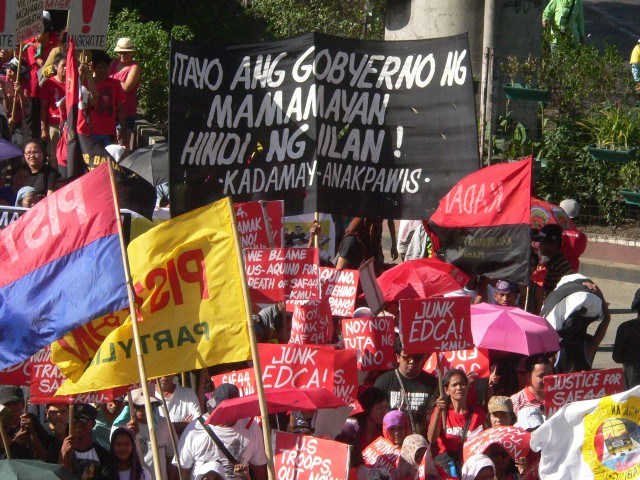People power or people’s power?
I’ve never really accepted the notion of “people power” (without the apostrophe-s).
This catchword is often used like it was a form of physical energy with supernatural overtones, something that can be conjured only by a superhero, a wizard, or a cardinal. To me, people power suspiciously sounds like “labor power”, which an employer pays with daily wages. Or “horsepower”, in which 1 hp = 745 watts.
The term people power creates the impression that it can be turned on and off at the flick of a lever, or at the signal of the superhero when the time is right, or when there are enough funds.
In short, I don’t like the term people power.
In contrast, real people’s power is the result of a revolutionary and sustained social process, in which the organized masses of the people take political power into their hands and wield it to defend their collective interests, uplift their collective lives, and ensure the bright future of the next generations.
Real people’s power may also be equated with the term “people’s empowerment”, to emphasize that the process involves the the millions of masses empowering themselves.
The 1985 EDSA people’s uprising was a historical event that overthrew a fascist dictatorship, true. It provided us all with a panoramic glimpse of what real people’s power would have felt like, true.
But the successive post-EDSA regimes failed to keep the promise and potential of real people’s power. Rather, they squandered the gains of EDSA to pursue their own narrow ruling-class interests. From one anniversary to the next, they basked on the superficial gild and glimmer of those few glorious February days, waving their yellow People Power flags. The yellow gild and glimmer have now gradually faded together with the broken promises.
Some of these post-EDSA regimes even tried to push back against the onrushing tide of democracy and to further fortify the fascist legacies of Marcos. They have opened up the country to more intense foreign and feudal exploitation, and accumulated their own bit of loot and plunder along the way.

The Filipino people are still hoping and struggling to attain and sustain real people’s power. Throughout these 7,600 islands, their mass organizations are still being built and expanded, being tempered in defense of their legitimate and aspirations, in the streets and campuses, in the urban and rural communities.
These, to me, are what keep the memory of EDSA 1986 alive and pulsing bright. #


